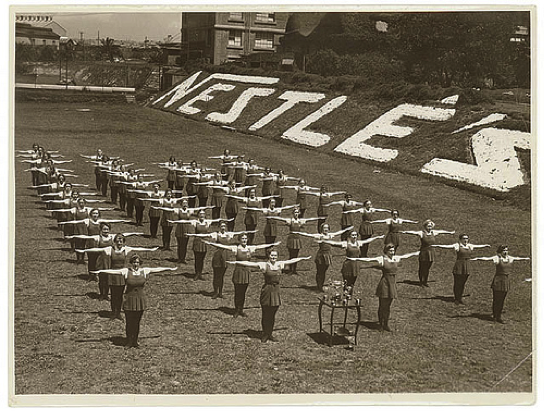SHARE
A startup culture inside a company like Nestle?
Think about the differences between a traditional and startup culture. Startups are small, a little bit wild, while traditional companies are big, structured, organized. Startups are born to create and develop new products, new businesses and need to do that fast, they breathe autonomy and flexibility. If they do not have that, they cannot survive. Startups teams’ extreme motivation - combined with high autonomy - is translated into an incredible speed, immediate decisions making and continuous trial and error. All these factors are like oxygen for startups.
A few weeks ago, at our first class at the IE Venture lab we heard about the ‘Yatch week’ history. Two entrepreneurs who had a great idea: Bringing a luxury experience to young people for 500$ a week! They just invested 25.000 $ in a great video, then received 3 million visits and immediately kick-off the company with 15 million sales in the first year!
The question is if such kind of fresh air and speed would be healthy in a traditional company to boost motivation, entrepreneurship and finally create a business impact. For example, would that be possible in a traditional company like Nestlé?
Roxy Vickerman recently published a nice post to share how Nestlé has understood the value of digital business and is fostering entrepreneurialism by embracing a hacker culture at the top level.
Pete Blackshaw, Nestle’s Global Head of Digital and Social Media, spoke of the need to have a startup culture within the company in a discussion with Gregory Pouy of LaMercatique at the LeWeb conference. Through their innovation lab they are trying to influence how the entire enterprise learns, thinks problems through, and acts as nimble, entrepreneurial teams. The hacker culture trains leaders to create value in a highly disruptive environment. Their innovation hub created this exciting parallel of innovation and ambition unbounded by previous structures that perhaps didn’t accelerate new ways of thinking.
![Nestle2]()
Nestlé’s Digital Acceleration Team at work.
This cultural transformation is key to adopt the digital business in other areas such as operations. Can you imaging doing technology scouting to improve your operations with no entrepreneurial mindset in place? How people can accept ideas and technologies from the outside to change their products, processes and business? How those ideas can be translated into business results? To summarize, traditional companies might need to adopt the spirit and culture of start-ups, to capture the speed of innovation out of their boundaries, to continue evolving to compete in a global market, where disruption might come tomorrow unless you leap up to lead the change. Download our Engineering Crowdsourcing white paper